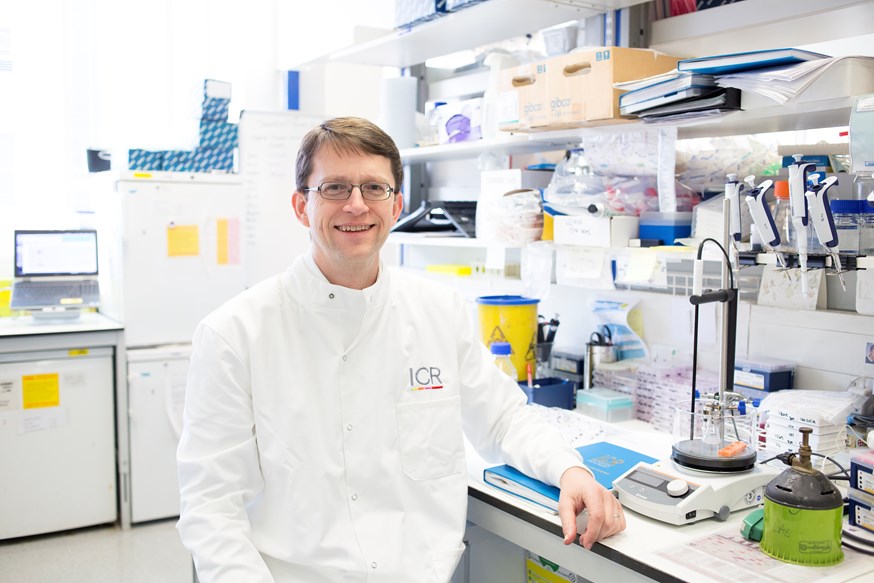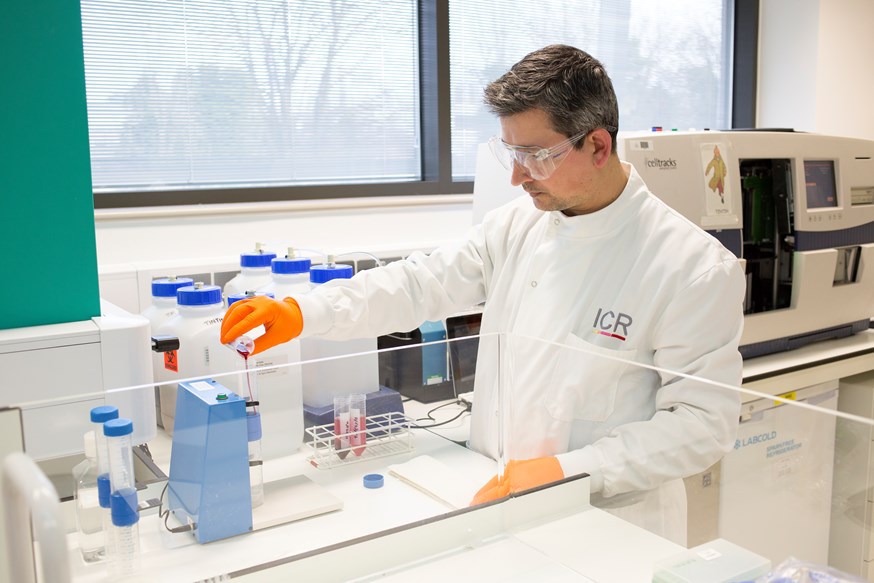For over a century, The Institute of Cancer Research and The Royal Marsden have worked together to drive forward cancer treatment by taking cutting-edge research from the laboratory into the clinic. It’s what we call the ‘bench to bedside’ model, although these days we’re more likely to refer to it as ‘bench to bedside and back again’ to emphasise how clinical findings shape the ICR’s future research priorities.
In 2006, our partnership gained increased recognition as we became the UK’s only National Institute for Health Research (NIHR) Biomedical Research Centre (BRC) – a type of clinical-academic collaboration – to be focused specifically on cancer. The NIHR grant enhances our ability to take ICR research findings into the clinic.
Now HRH The Duke of Cambridge, who is the President of The Royal Marsden, will be visiting the hospital’s site in Sutton to learn about its work – and a major focus will be The Royal Marsden’s research with the ICR within the BRC. On the itinerary is the Centre for Molecular Pathology, funded through the BRC, which houses a range of ICR scientists side by side with their Royal Marsden colleagues.
It seems a good opportunity to provide an overview of some of the pioneering research which the BRC is helping to support across the ICR and The Royal Marsden.
Blood tests for breast and prostate cancer
Dr Nicholas Turner, a Team Leader at the ICR and a Consultant at The Royal Marsden, has shown that blood tests for cancer DNA can detect tiny numbers of tumour cells left behind after surgery – and pick up early signs that the disease is becoming resistant to treatment. This method can detect signs of cancer returning as early as eight months before it would be visible in hospital scans.
Find out more
 Dr Nicholas Turner in his lab at the ICR
Dr Nicholas Turner in his lab at the ICR
Dr Turner, whose work is in part supported through the BRC, has also shown that blood tests or ‘liquid biopsies’ can be used to spot when breast cancers become resistant to standard hormone treatment.
Find out more
And our research in this area is not limited to breast cancer. A team led by Dr Gerhardt Attard, a Clinician Scientist at the ICR and a Consultant at The Royal Marsden, developed a blood test that identifies key mutations driving resistance to treatment for prostate cancer. His test picks up mutations that are involved in resistance to a widely used prostate cancer drug called abiraterone – which as it happens was also discovered at the ICR, and developed jointly with The Royal Marsden.
Find more
Innovative Clinical Trials
The ICR and The Royal Marsden work closely together on a programme of highly innovative clinical trials, many of which assess novel targeted treatments.
Professor Johann de Bono, Professor of Experimental Cancer Medicine at the ICR and a Consultant at The Royal Marsden, led a clinical trial, the results of which were published earlier this year, which showed that a pioneering ovarian cancer drug can also benefit men with advanced prostate cancer.
Without wanting to labour the point, the drug, olaparib, was also underpinned by ICR science, and its early clinical trials were led in part by researchers across the two organisations.
Find out more
 Dr Mateus Crespo
Dr Mateus Crespo
This is just a brief flavour of the exciting research the ICR and The Royal Marsden are doing together, much of which is supported by infrastructure funding to the BRC. If you want to learn more, visit our news section, or go to the BRC website.
We hope HRH The Duke of Cambridge is impressed by his visit, and that it helps to raise awareness of the fantastic translational and clinical research carried out together by The Royal Marsden and the ICR.
comments powered by